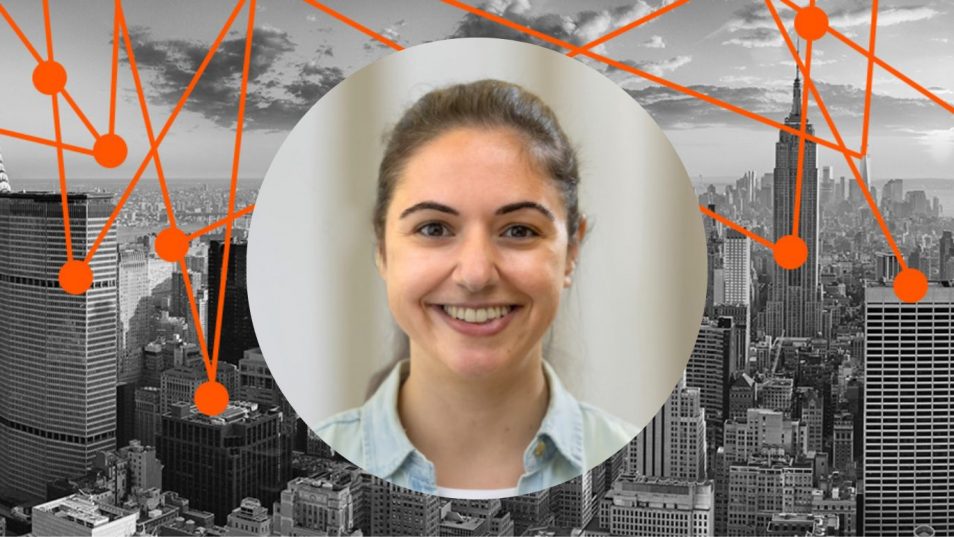Five questions for Rita Sousa Silva
 © DWIH New York
© DWIH New York
The DWIH New York had the pleasure of interviewing Dr. Rita Sousa Silva, speaker at the FUTURE FORUM 2023, and a Research Fellow at the Young Academy for Sustainability Research at the University of Freiburg, Germany, one of the DWIH main supporters with an office in New York.
Hello Rita, please tell us a bit about yourself and your career path.
Hi! I’m an ecologist who likes to study how people and nature influence each other in the places where most of us live – cities. But it wasn’t always like this!
I come from Portugal, and upon graduation, a career in academia was not even on my radar. But during my master’s thesis, I loved the “detective work” that is research and that led me to pursue a PhD. I left for Belgium, where I studied the impacts of drought on forests. But Belgium does not have that many forests, so after my PhD I packed up and headed to Canada to study “real” forests and see what happens there. But I soon learned wilderness is not my thing, and I missed living in a city very much. I ended up in Montreal working on an interdisciplinary project on urban forests for health. Love at first sight! Since then, I have been studying the role of urban trees – loved and hated – in cities, first in Montreal, Canada, then at the University of Freiburg, Germany, as a postdoctoral researcher, and soon, as Assistant Professor at Leiden University, in the Netherlands.
Could you tell us about your work and what fascinates you about it?
I love trees! I think trees are fascinating – from the giant sequoias and redwood groves of California to the forests of oaks and chestnut trees from my homeland and Germany’s fir-cloaked Black Forest, which I am privileged to live next to – and there is still so much to know and understand! And there they are, right in the middle of our cities. They are our shade on sunny days, our natural air conditioners, just quietly doing their thing while we rush around. I think I am very fortunate that my work is to learn more about them and care about them, and to share that knowledge with others — not from fairy tales, but from scientific research. I also love that as a researcher, and as a teacher, I’m not just talking about problems but doing something to solve them. When many do little, a lot gets done.
The FUTURE FORUM topic 2023 is “From Crisis to Resilience”, which part does your research area play in the path to a resilient society and what can attendees expect from your contribution at the conference?
Most of my most recent research has focused on the benefits of urban greening – trees and shrubs in streets, parks, woodlands in and around urban areas – as a promising approach to sustainable and resilient cities. I believe that investing in nature in cities is an essential and urgently needed component of resilience solutions to protect our societies against climate change.
At the conference, I will present the results of a survey we did last summer on the role of greenspace as an extreme heat adaptation strategy among German urban residents. For example, more than 70% of the people we asked were all for creating more parks and planting more trees along streets to tackle climate change and lessen its effects. And more people supported these solutions than subsidizing air conditioning units or expanding public access to cooled buildings!
In 2020, the “FUTURE FORUM: Introducing Biopolis” focused on building “Biopolis”, the green city of the future, so with your field of expertise we seem to partly come back to this topic. What advice can you give our readers that live in cities – be it in US, Germany or elsewhere in the world – if they want to help make their cities greener and more resilient?
Hmm… first and foremost, to protect and care for the trees that are already growing there – from their own backyards to their front doors lining streets and parks. For example, one can help keep street trees alive in summer by watering them generously once a week. And encourage friends and neighbors to properly care for the trees they have, too. The trees will repay them in kind with shade in the future!
Where and how can our readers get a glimpse of your work before the FUTURE FORUM?
I will also be presenting my work at the World Forum on Urban Forests in Washington DC, in October, and they can always reach out to me on Twitter (@ritassilva) – or whatever it is called these days 😉
Thank you, Rita, for the interview. We look forward to meeting to meeting you at the FUTURE FORUM in October!
